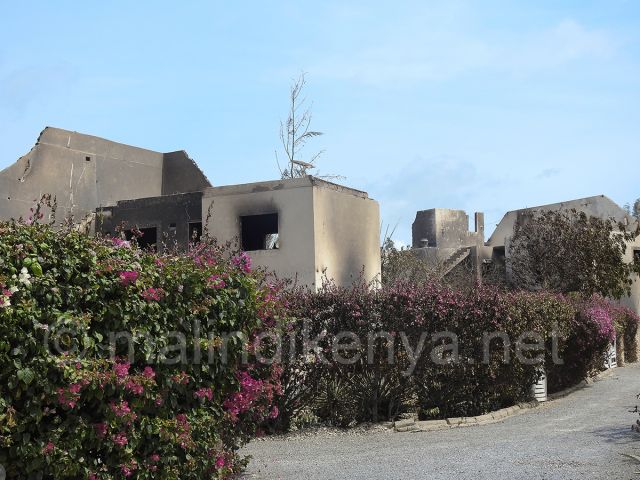
EDITORIAL
24-07-2023 by Freddie del Curatolo

One of the aspects that most attract Westerners who visit Kenya and Tanzania is the pace of life of the local people. A "slow pace" as the Neapolitan Tullio De Piscopo used to sing, a cadence that to northern Italians may actually remind them of the taking it easy of southern people. In the Swahili culture of the African coast bordering the Indian Ocean, this lifestyle rises to philosophy and is called "pole pole."
Two Swahili folk sayings illustrate, as proverbs often do, better than any discourse what is equatorial Africa's praise of slowness. "Haraka haraka, hakuna baraka" (literally "To do things in haste there is no blessing" but "baraka" also means "gain") and "Pole pole ndiyo mwuendo" ("Slowness is right going"). But it is not just about a life in the slow motion, which might sound like a delay in reflexes or, even worse, mental retardation. Pole pole, for a Kenyan, means above all taking it easy, because hustling serves little purpose. This becomes very clear when the Western man appears, the famous "mzungu" who is used to doing things in a hurry, optimizing time and thinking that life should be lived frantically because that is the only way to enjoy every single moment.
For Africans, ancestrally, it is exactly the opposite: time that flows by doing everything without care, is a healthy, well-enjoyed time that makes peace with existence. If time is money, for example, it is natural that one should give more importance to money, because that is what is lacking. On the other hand, however, time is the precious commodity we all have, even those who do not have and will never have money.
That is why "pole pole" is often paired with another expression-philosophy of Swahili people, which is "hakuna matata," or "no problem," a phrase made famous in the world by Disney's very famous cartoon "The Lion King."
An elderly Lamu professor and poet once told me, "Those who live in a hurry will not only not enjoy life but will not even enjoy death." I think in this unintentionally Buddhist-sounding sentence, especially since it was uttered by a Muslim, thus by one who is supposed to believe in the afterlife and not in harnessing the maximum potential of the energy of the living, has always made me think.
We of the "pole pole" are wont to see the pleasant and relaxing aspects of contemplation, the amusing and grotesque ones of the excessive calmness of the local population, and the sometimes objectionable ones of the excessive laxity and more natural indifference, which at work or in services can become menial and unnerving to those who have a business or a client.
Even if then it is the "mzungu" themselves who live in or frequent countries of Swahili culture who become addicted to the "pole pole," which acts on them as a natural soothing agent and, as I say in my poem-monologue on African Sickness, "the nervous system settles down, not gets nervous."
Because if you look closely, "pole pole" is accepted by both those who practice it and those who receive it or, as we are more inclined to think, suffer it. The guy standing in line for forty minutes to pick up two pennies with his cell phone is just as quiet as the clerk who takes as much time as she deems necessary to treat each customer on the other side of the counter as if she were going to spend the night there. Just as waiting for a political rally or an assembly to decide on something communal, announced for a certain time, will surely take place three or four hours later, but most of the bystanders will have been there even since before the supposed start. We could go on with dozens of examples leading to the same conclusion: the "pole pole" is reciprocal, democratic and popular. That is why we can call it a phenomenon of culture.
And you tourists, from the easy judgments that in these fast and liquid times must end up in a post on social profiles, know that it is not just a matter of comparing the flaws of hectic Western life and related frustrations, with almost total abandonment, that is the classic vacation effect. Living the "pole pole" does not only mean doing without the alarm clock and other trappings that symbolize the absurd rhythms of the modern age of "he who stops is lost," it also means relating it to other aspects, positive or otherwise of Africa.
From so-called living by the day to resignation as a form of survival, from the inexorable law of the fittest in the animal kingdom to always finding the most convenient expedient to get by.
Pole pole, on an unconscious level, is the equation of speed combined with the realism of what man is.
To use a car metaphor, if you can't drive, why press on the accelerator? Go slow, enjoy the scenery, and don't care how long it takes you. You will surely arrive and it will be more enjoyable, interesting and fulfilling to recount what you have seen on the journey.
In closing, however, I find it apt to quote an ancient African proverb: "That which grows slowly, puts down deep roots."
NEWS
by redazione

The most important news is that voting operations throughout Kenya took place in a peaceful manner and with a patience index that we Italians, for example, would not be able to. Suffice it to think that in many polling stations...
SLOW TOURISM
by Freddie del Curatolo

To speak of slowness, translated into Swahili 'pole pole', is never abstruse or daring for Kenya. The...
MOURNING
by Freddie del Curatolo

At almost eighty, his vitality was a healthy adrenaline for anyone around him.
It was...
VIDEO PRODUCTION
by Freddie del Curatolo

Every Tuesday, our "semi-serious lessons in Kiswahili" continue, a non-academic and less...
by Freddie del Curatolo


Starting the year 2024 with a few smart laughs is almost a must for the Italians, and doing it
NEWS
by Freddie del Curatolo

Since the boom in tourism on the Kenyan coast has increased the number of constructions to...